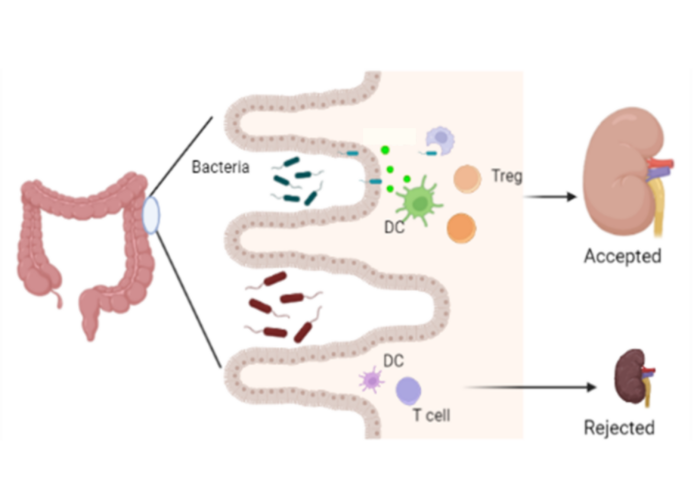Project leaders: Antoine DURRBACH , Jamila FAIVRE , Camille MARTIN-GALLAUSIAUX
For diagnosis and therapy - (16/11/2023)

Renal transplantation is the best treatment for end-stage renal failure. The best results from transplantation are linked to the development of immunosuppressive molecules capable of controlling the allo-immune response, such as calcineurin inhibitors (CNIs). However, they are associated with long-term nephrotoxicity and increased cardiovascular risk. These drawbacks led to the development of Belatacept, a CTLA4-Ig checkpoint inhibitor (CPI), which inhibits the CD28 activation pathway, mainly in naive LT. Belatacept has been shown to improve renal function in transplanted kidneys compared with a CPI. However, it is also associated with a higher incidence and degree of acute cellular rejection (ACR). Reported ACR rates vary from 5% to 40%, depending on the continent where patients live, suggesting a role for the microbiota in the occurrence of ACR. Several studies, particularly in oncology, have demonstrated interactions between commensal microbiota and the immune system.
The aim of this project is to show that some of the bacteria in the microbiota could modulate the allogeneic immune response in solid organ transplantation, to define the underlying mechanisms and to define probiotics for better transplant acceptance.
Contact : Antoine DURRBACH – Integrative tumor immunology and cancer immunotherapy team